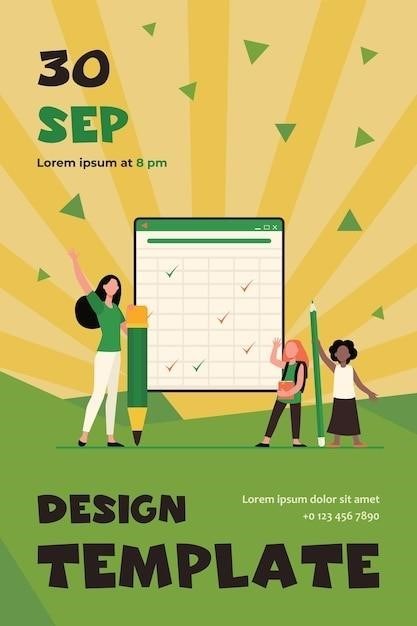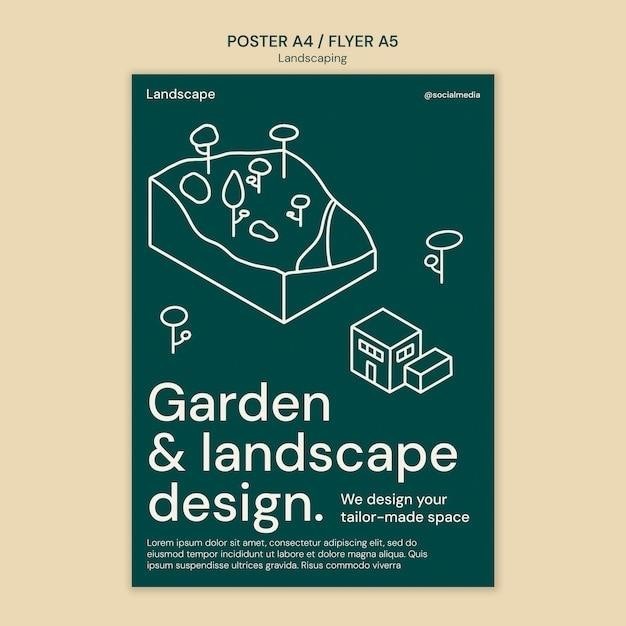Parent Conference Form PDF⁚ A Comprehensive Guide
A parent conference form PDF is a valuable tool for educators to document and streamline the process of parent-teacher conferences. This guide provides a comprehensive overview of parent conference forms, including their benefits, types, essential elements, free templates, customization tips, and legal considerations.
What is a Parent Conference Form PDF?
A parent conference form PDF is a digital document designed to facilitate communication between teachers and parents during student progress discussions. It serves as a structured framework for documenting key points, observations, and action plans. These forms are typically used during formal parent-teacher conferences, often held once or twice a year, or as needed for specific student concerns. The purpose of a parent conference form is to ensure a focused and productive conversation, fostering collaboration between educators and families in supporting a student’s academic and personal growth.
These forms are essential tools for educators, providing a consistent approach to documenting important information. They serve as a valuable reference point for both teachers and parents, ensuring that all key points are captured and understood. By using a parent conference form, educators can streamline the process of conducting meaningful and impactful conferences, ultimately leading to a more effective partnership between school and home.
Benefits of Using a Parent Conference Form PDF
Utilizing a parent conference form PDF offers a multitude of benefits for both educators and parents, enhancing the effectiveness and efficiency of these important meetings. Here are some key advantages⁚
- Improved Organization and Focus⁚ Parent conference forms provide a structured format, ensuring that all essential topics are addressed during the meeting. This organized approach helps keep the conversation on track, preventing tangents and ensuring that all important information is discussed.
- Enhanced Communication and Collaboration⁚ The form acts as a shared document, facilitating clear communication between teachers and parents. It helps to ensure that both parties are on the same page regarding the student’s progress, areas for improvement, and potential solutions.
- Comprehensive Record-Keeping⁚ Parent conference forms create a valuable record of the discussion, including key observations, goals, and action plans. This documentation serves as a valuable reference point for future meetings, allowing educators and parents to track progress and make adjustments as needed.
- Increased Accountability⁚ The form’s structured format helps to hold both teachers and parents accountable for their roles in supporting the student’s success. It encourages a collaborative approach, emphasizing shared responsibility for achieving academic and personal goals.
In summary, parent conference form PDFs offer a structured and efficient approach to these important meetings, fostering clear communication, improved organization, and a collaborative partnership between educators and families.
Types of Parent Conference Forms
Parent conference forms come in various formats, each tailored to specific needs and purposes. Here are some common types⁚
- Basic Conference Form⁚ This simple form focuses on core elements, including student strengths, areas of concern, goals, and action plans. It’s a good option for brief conferences or those with a limited scope.
- Detailed Conference Form⁚ This comprehensive form includes sections for specific academic subjects, behavioral observations, standardized test scores, and detailed action steps. It’s suitable for in-depth discussions about a student’s overall progress.
- Pre-Conference Form⁚ This form allows parents to submit their questions, concerns, or areas they wish to discuss in advance of the conference. This helps teachers prepare and ensure that all important topics are covered.
- Post-Conference Follow-Up Form⁚ This form serves as a summary of the conference discussion, outlining key takeaways, agreed-upon action steps, and follow-up dates. It helps ensure that both parties understand the next steps and maintain accountability.
- Specialized Forms⁚ Some forms are designed for specific purposes, such as addressing specific learning disabilities, student-led conferences, or conferences for students with special needs.
Choosing the right type of parent conference form depends on the individual needs of the student, the level of detail required, and the specific goals of the meeting.
Essential Elements of a Parent Conference Form PDF
A well-designed parent conference form should include essential elements to facilitate productive discussions and ensure that all key information is captured. Here are some critical components⁚
- Student Information⁚ Include the student’s name, grade, teacher’s name, and date of the conference. This ensures accurate recordkeeping and avoids confusion.
- Areas of Strength⁚ Highlight the student’s academic strengths, positive behaviors, or any outstanding achievements. This sets a positive tone for the discussion and encourages a collaborative approach.
- Areas of Concern⁚ Clearly identify areas where the student may be struggling academically or behaviorally. Provide specific examples and observations to support these concerns.
- Goals and Action Plans⁚ Outline specific goals for the student’s improvement and develop action plans to address areas of concern. These plans should be collaboratively developed with parents and teachers.
- Parent Input⁚ Include a section for parents to share their observations, concerns, or questions about their child’s progress. This fosters open communication and ensures that parents feel heard.
- Follow-Up and Next Steps⁚ Outline the next steps, including follow-up meetings, assignments, or resources for parents to support their child’s progress.
- Signatures⁚ Provide space for both the teacher and the parent to sign the form, acknowledging their understanding and agreement on the discussed topics.
By incorporating these essential elements, parent conference forms can serve as a valuable tool for fostering effective communication, collaboration, and positive outcomes for students.
Free Parent Conference Form PDF Templates
Numerous resources offer free parent conference form PDF templates, making it easy for educators to find a suitable format for their needs. These templates can be customized to fit specific school requirements and grade levels. Here are some popular platforms where you can find free parent conference form templates⁚
- Teachers Pay Teachers (TPT)⁚ TPT is a large online marketplace for educators, offering a wide selection of free and paid resources, including parent conference form templates. You can filter your search to find specific templates that meet your requirements.
- Google Slides⁚ Google Slides provides a user-friendly platform for creating and customizing presentations, including parent conference forms. You can find free templates and modify them to include your school’s logo, branding, and specific content.
- Online Form Builders⁚ Websites like JotForm and Formstack offer free form builders that enable you to create professional-looking parent conference forms. These tools allow for customization, data collection, and easy sharing of forms.
- Educational Resource Websites⁚ Various educational websites, such as Education World and Scholastic, often provide free printable resources, including parent conference form templates.
By utilizing these resources, educators can access free parent conference form templates to streamline the conference process and enhance communication with parents.
How to Customize a Parent Conference Form PDF
Customizing a parent conference form PDF ensures that it effectively meets the specific needs of your school and the individual students. Here are some key steps to follow when customizing a parent conference form⁚
- School Branding⁚ Incorporate your school’s logo, colors, and font style to maintain consistency with other school documents. This adds a professional touch and reinforces school identity.
- Grade-Specific Information⁚ Tailor the form to the specific grade level by including relevant information and assessments. For example, a form for elementary school students might focus on reading and math skills, while a form for high school students might include information about college readiness.
- Personalized Sections⁚ Create sections for specific student information, such as strengths, areas for improvement, goals, and action plans. This allows for individualization and targeted discussions.
- Additional Fields⁚ Consider adding fields for parent input, questions, or concerns. This encourages active participation from parents and allows them to voice their perspectives.
- Clear Formatting⁚ Use clear headings, bullet points, and spacing to make the form easy to read and navigate. This ensures that the information is presented in an organized and accessible manner.
By customizing the form, you can create a valuable tool for effective communication and collaboration during parent conferences.
Tips for Successful Parent Conferences
Parent conferences are crucial for fostering positive relationships between teachers and parents and supporting student success. Here are some valuable tips for conducting successful parent conferences⁚
- Preparation is Key⁚ Review student records, assessments, and work samples before the conference to have a clear understanding of the student’s progress. This helps you provide insightful information and address specific concerns.
- Positive Start⁚ Begin the conference by highlighting the student’s strengths and achievements. This sets a positive tone and encourages open communication.
- Active Listening⁚ Pay close attention to parents’ concerns and perspectives. Validate their feelings and demonstrate empathy. This fosters trust and encourages collaboration.
- Collaborative Approach⁚ Work together with parents to establish goals and develop strategies for supporting the student’s academic and personal development. This ensures that everyone is working toward the same objectives.
- Clear Communication⁚ Use clear language and avoid educational jargon. Explain concepts in a way that parents can easily understand. This promotes effective communication and avoids confusion.
- Follow-Up⁚ Send a follow-up email or letter summarizing the key points discussed during the conference. This reinforces the conversation and provides a written record for future reference.
By following these tips, you can create a positive and productive environment for parent conferences, fostering strong partnerships and promoting student success.
Using Parent Conference Forms for Different Grade Levels
Parent conference forms can be adapted to suit the specific needs of different grade levels. Here are some considerations for tailoring the forms to different age groups⁚
- Early Childhood⁚ For preschool and kindergarten, the form should focus on social-emotional development, play-based learning, and communication skills. Include sections for parent observations of their child’s behavior, interests, and learning style.
- Elementary School⁚ In elementary grades, the form should include sections for academic progress in core subjects like reading, math, and science. Include space for discussing classroom behavior, homework habits, and participation in extracurricular activities.
- Middle School⁚ Middle school forms should address academic performance, including standardized test scores and progress in specific subjects. Include sections for discussing social-emotional development, peer relationships, and potential challenges they might face.
- High School⁚ High school forms should focus on academic planning, including course selection, college and career readiness, and potential career paths. Include space for discussing extracurricular activities, leadership opportunities, and any special needs or accommodations.
By customizing the parent conference form to reflect the specific needs and developmental stages of each grade level, you can ensure that the conferences are relevant, informative, and productive for both parents and teachers.
Legal Considerations for Parent Conference Forms
While parent conference forms are primarily designed to facilitate communication and collaboration, it’s important to be mindful of legal considerations to ensure compliance and protect the privacy of students and their families. Here are some key points to consider⁚
- FERPA (Family Educational Rights and Privacy Act)⁚ FERPA dictates how schools can share student information. Ensure that the parent conference form adheres to FERPA guidelines, particularly regarding sharing sensitive information about students’ academic performance, behavior, or special needs.
- HIPAA (Health Insurance Portability and Accountability Act)⁚ If the form includes information about a student’s health or disability, ensure compliance with HIPAA regulations. This may involve obtaining parental consent for sharing such information.
- Data Security⁚ The form should incorporate appropriate data security measures to protect student information. This includes secure storage, access control, and measures to prevent unauthorized disclosure or modification of data.
- Parental Consent⁚ Ensure that the form includes a clear section for parental consent regarding the sharing and use of student information. This may involve providing a separate consent form or obtaining explicit verbal consent during the conference.
Consulting with school legal counsel or a privacy specialist can provide guidance on specific legal requirements and best practices for using parent conference forms. By understanding and addressing these legal considerations, schools can ensure responsible and ethical use of these forms while protecting student privacy.

The Future of Parent Conference Forms
The landscape of education is constantly evolving, and parent conference forms are likely to adapt alongside. Technological advancements will play a significant role in shaping the future of these forms. Here are some potential trends⁚
- Digital Transformation⁚ Paper-based forms will likely give way to digital platforms. This will streamline the process, allowing for easier access, editing, and sharing of information. Schools may adopt online forms that parents can complete electronically, reducing the need for physical paperwork.
- Personalized Learning⁚ As personalized learning becomes more prevalent, parent conference forms may incorporate sections tailored to individual student needs. This could include specific goals, progress tracking, and personalized interventions.
- Integration with Learning Management Systems (LMS)⁚ Parent conference forms could be integrated with existing school LMS platforms. This would allow teachers and parents to access student data, progress reports, and other relevant information in a centralized location, fostering better communication and collaboration.
- Data Analytics and Insights⁚ Parent conference forms may incorporate data analytics tools to gather insights from conference discussions. This data could be used to identify trends, improve future conferences, and personalize student support.
Ultimately, the future of parent conference forms will focus on enhancing communication, collaboration, and personalization to better support student success. The integration of technology will continue to play a key role in achieving these goals.
Parent conference forms are a crucial tool for fostering effective communication between educators and parents. They provide a structured framework for discussing student progress, addressing concerns, and developing a collaborative plan for student success. By using a well-designed parent conference form, teachers and parents can ensure that conferences are productive, informative, and focused on the student’s needs.
From free templates to customizable options, there are numerous resources available to help educators create and utilize effective parent conference forms. These forms can be adapted to suit different grade levels, subjects, and individual student needs. By embracing the benefits of parent conference forms, schools can strengthen the partnership between educators and families, ultimately leading to a more supportive and enriching learning environment for all students.
As technology continues to advance, parent conference forms will likely evolve to become even more integrated with digital platforms, facilitating communication and collaboration. The future of parent conference forms holds great promise for enhancing the educational experience for both students and their families.









